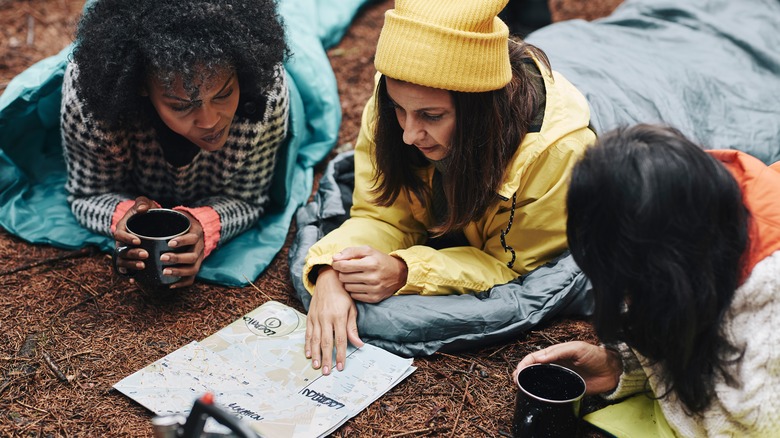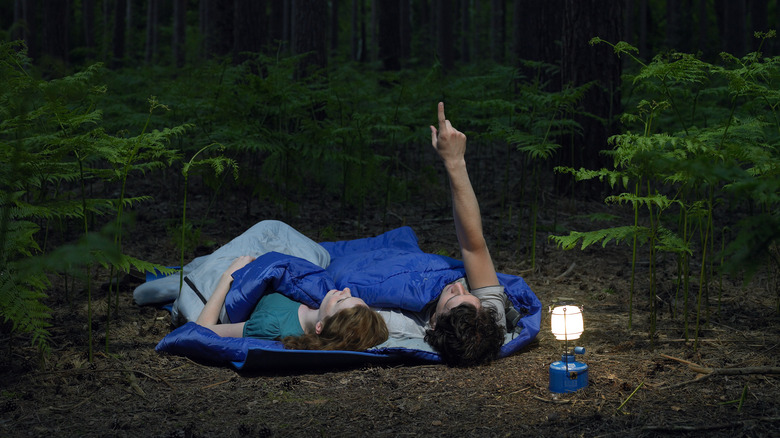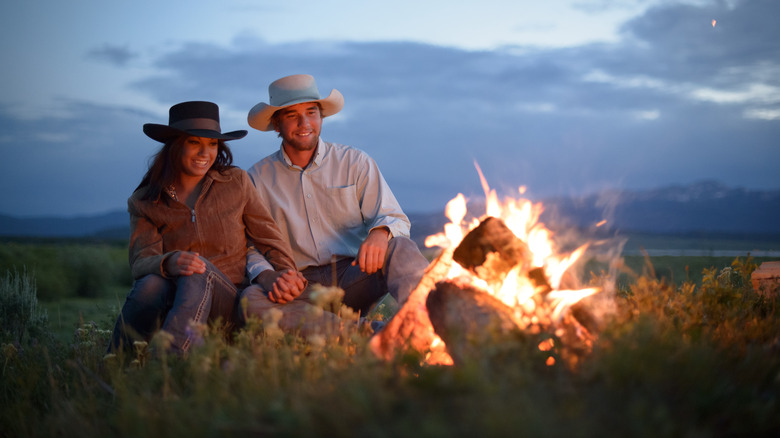Cowboy camping is an outdoor adventure where people sleep in the open instead of using traditional camping gear like tents. This type of camping allows you to feel the cool breeze and wake up with the sun, so you can immerse yourself in nature. Trekking Higher states that setting up and breaking down camp is easier with cowboy camping as you don’t have to pitch a tent or set up anything elaborate and that many find the draw of sleeping under the stars alluring. It could even help you become more confident in things like predicting weather, selecting good campsites, and prioritizing safety in the wilderness.
In the words of a Redditor on the Camping and Hiking subreddit, “Camping under a roof always seemed to defeat the purpose. I love rolling over in the middle of the night and watching the moon & stars as I fall back asleep.” However, the Redditor went on to note some downsides. “Insects and snow are the only things that have ever made me wish I brought a tent. Even when it rains I just wrap my sleeping bag in a tarp, drape it over my face, and get cozy.”
If you have concerns but still want to try cowboy camping (and have an enjoyable experience), arming yourself with information is the key.
Choosing the right environment for cowboy camping

If you’re considering cowboy camping, it’s important to weigh several factors, primarily based on the location where you plan to camp. Not every region is ideal for cowboy camping. For example, cowboy camping is more enjoyable in predictable weather with fewer bugs. According to The Trek, it’s best to go cowboy camping in places that don’t receive a lot of rain, such as a desert or dry forest. You probably want to avoid cowboy camping in swampy or rainy places. High humidity, mosquitoes, and unpredictable weather can make it much less fun.
However, there are ways to make cowboy camping better in such places if you still want to try it. For instance, you can use bug nets to keep insects away. Bringing a lightweight tarp or rain cover for unexpected rain or moisture is also helpful. Connecting with others experienced in cowboy camping in your region can provide valuable insights on how to deal with the weather, bugs, and other challenges you may encounter while camping. Adapting your gear accordingly and connecting with experienced campers can help you make the most of this experience.
Overcoming fears and enjoying the experience of cowboy camping

If you’re thinking about trying cowboy camping, it’s important to remember that the experience can be exciting or challenging, depending on your preferences and initial fears. For example, it can be difficult if you’re not a fan of insects or wildlife. You may also feel anxious or vulnerable without a tent, but this can also be an opportunity to push yourself out of your comfort zone. According to Wilderness Times, the discomfort associated with cowboy camping is often more psychological than anything else. While it might seem daunting at first, it’s worth noting that cowboy camping is similar to traditional tent camping when it comes to safety. Tents only provide limited protection from wildlife, and even with a tent, bugs, snakes, and critters can sometimes find their way in.
Cowboy camping offers a unique opportunity for personal growth and a deeper connection with nature. While it may push you out of your comfort zone more than traditional tent camping, embracing this aspect can lead to a sense of freedom that transcends the physical constraints of a tent. According to Ridge Trekker, overcoming the psychological barrier of vulnerability and allowing yourself to feel free and comfortable in the wild can be a rewarding and unforgettable experience.

